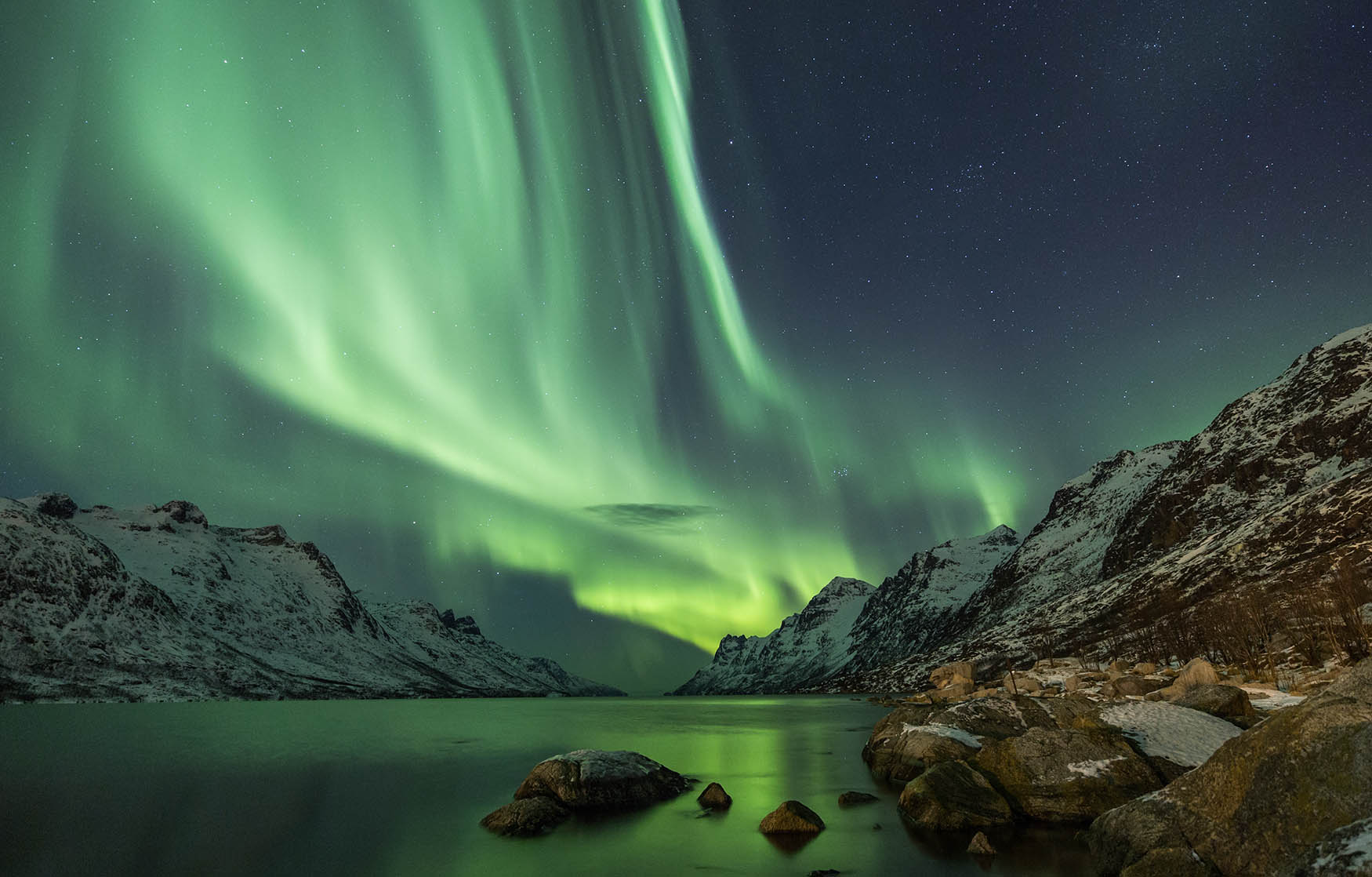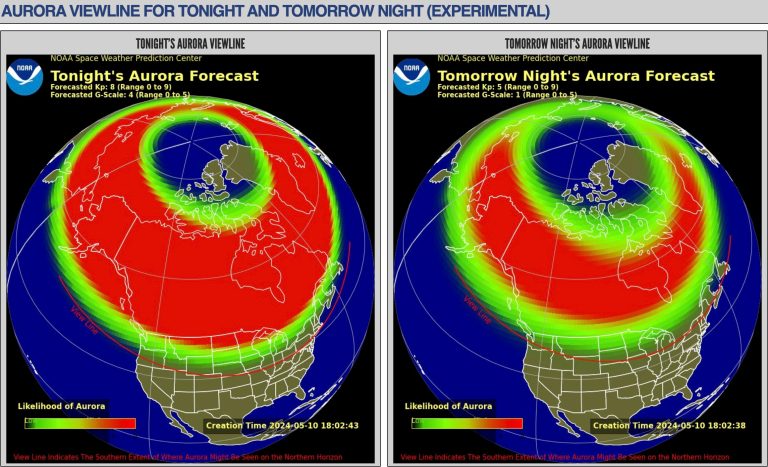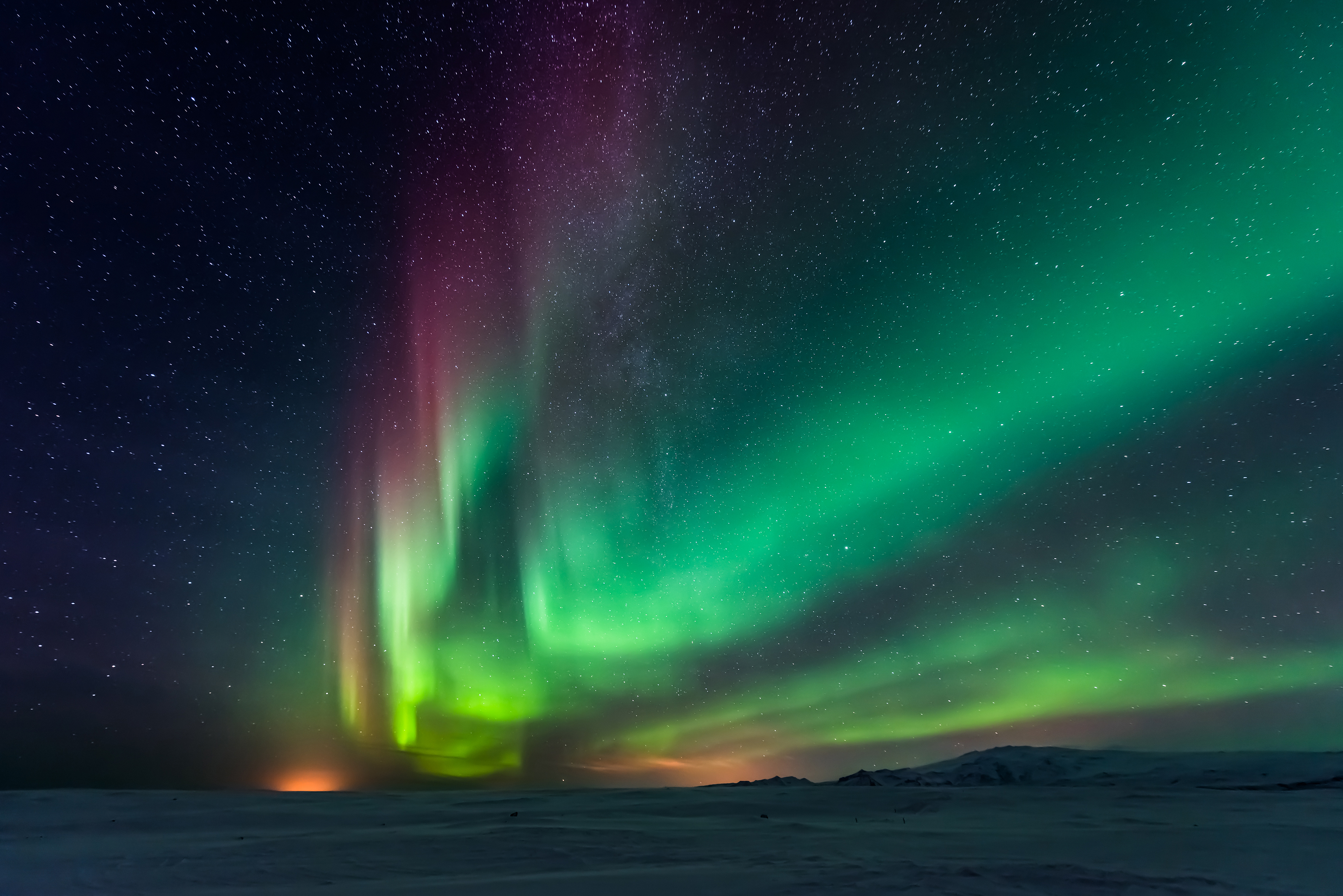Skywatchers as far south as Alabama may be in luck this weekend, as reports of severe geomagnetic storms could mean that the Northern Lights are going to be a lot more visible throughout May of 2024. With the solar maximum nearing, coronal mass ejections (CMEs) are more likely to happen, and that means more clashes between solar energy and Earth’s magnetic field are likely, too.
In this case, a train of storms is expected to crash into Earth’s atmosphere between May 10 and May 12, spurring appearances of auroras across a wide part of the United States. The auroras are expected to reach as far south as Alabama and northern California in these instances, though it isn’t guaranteed.
If you do want a chance to see these possibly unusual Northern Lights this May, then you’re going to need to find yourself a place without a lot of light pollution, as that will make things easier to spot. Those in large cities will want to travel outside of the main areas, where streetlights and buildings aren’t blocking the view.

These auroras are going to be caused by a series of solar storms, which range from minor to more severe G4 category storms (one of the rarest geomagnetic storms Earth can experience). As such, the auroras may also disturb GPS and radio communications and even possibly harm satellites in low-Earth orbit.
This is the first time that the NOAA has upgraded a storm watch to G4 since 2005. And it’s all because a giant sunspot called AR3664 keeps throwing CMEs toward Earth. With the most recent solar flare, the NOA says there are at least four storms headed our way.
Despite the possible harm, these storms also bring unique opportunities for skywatchers to see the Northern Lights spread across much greater parts of the world than they usually might. As such, May of 2024 seems like an exciting month for skywatchers who have been waiting to see the shimmering of the Northern Lights in the sky.
The map below shows NOAA’s projected visibility line for the Northern Lights on Friday and Saturday. The map will show you which US states should be able to see the auroras. Tomorrow, you can check the NOAA site for updated weekend aurora visibility projections for Saturday and Sunday.


